based on The Book of Exodus, chapters 9 through 15
In which Moses and the Pharaoh engage in a power struggle, and the people, in the middle of the night, learn of their liberation and, later, of the price of freedom.
For four hundred years, on the Pharaoh’s work sites, the people were enslaved.

Every day, no matter what, they had to make the same number of bricks.

Bricks of fear. Bricks of shame.
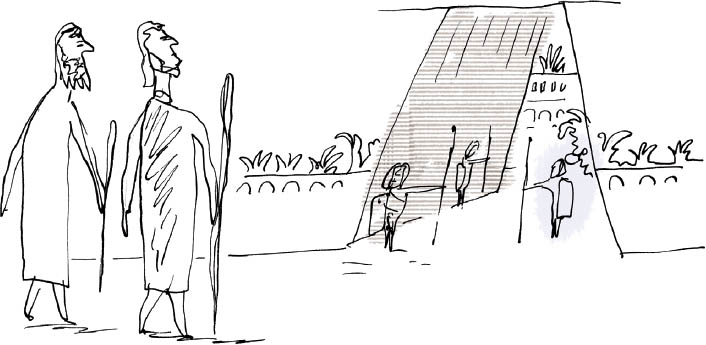
Each day, Moses and his brother Aaron went to the palace to talk with the Pharaoh.
They told him: Thus saith the Lord God of the Hebrews: Let my people go.

But the Pharaoh said no: Work or die.
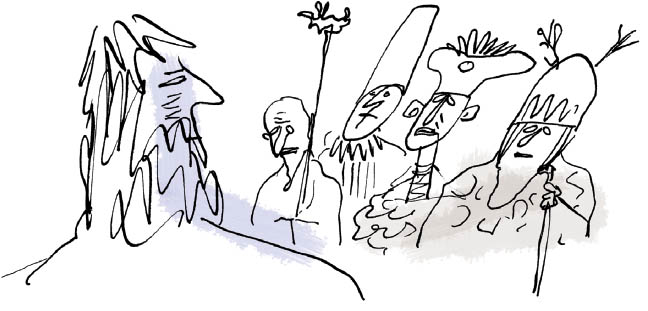
Moses defied the Pharaoh and all his magicians and sorcerers.
Aaron threw his stick on the ground, and it turned into a snake.
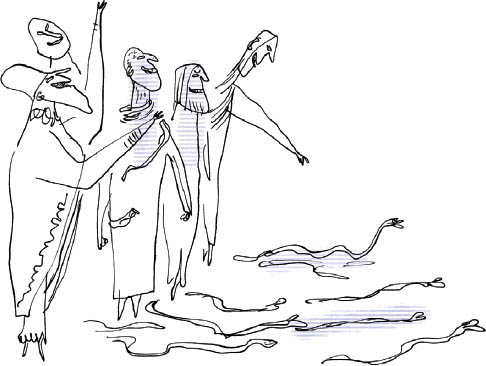
The pharaoh’s magicians laughed and did the same.
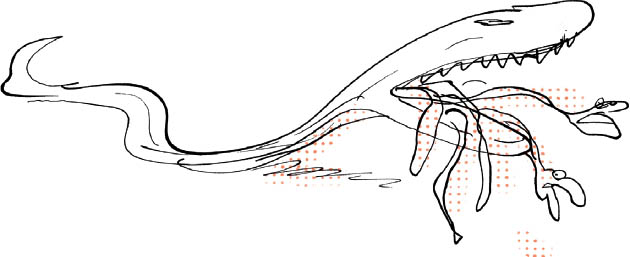
But Aaron’s snake ate all the others up.
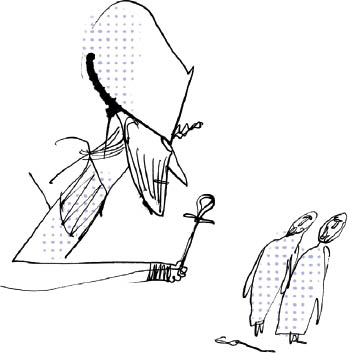
And yet still the Pharaoh would not give in.
To work! To work! cried the Hebrew slave drivers.
Don’t listen to Moses. It’s because of him that they hate us.
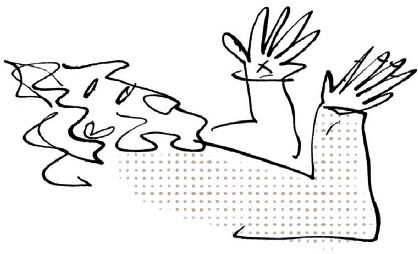
Moses was desperate. He said to God: Since I spoke to the Pharaoh in your name, it’s only gotten worse. Even my own people will no longer listen; why on Earth should the Pharaoh?

And God said: Got it! The Pharaoh’s heart will I harden.
Rivers of blood.
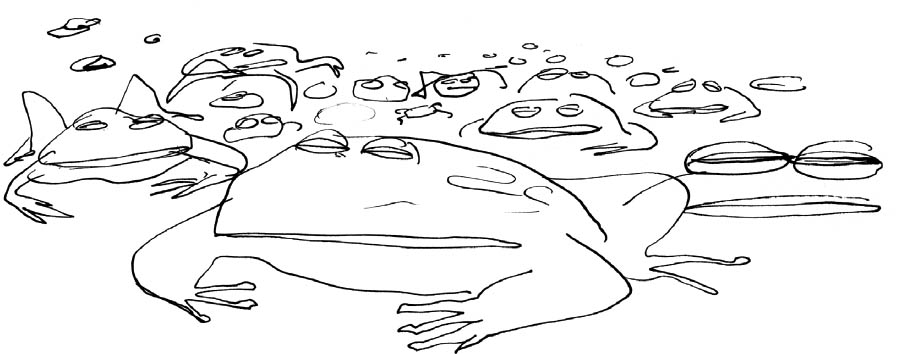
Plagues of frogs, mosquitoes, and vermin.

All the livestock died.

Boils.
Hail.

Plagues of locusts.

Night all over.
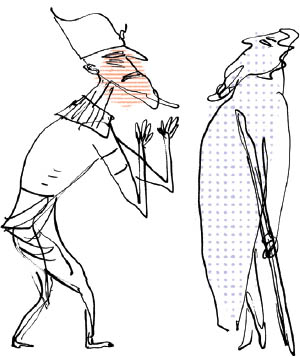
Every time disaster struck, the Pharaoh grew frightened and called for Moses.
And yet every time, the Pharaoh felt his heart getting harder and harder.
The tyrant who won’t hear the pain of his victims also eventually can’t hear his own.
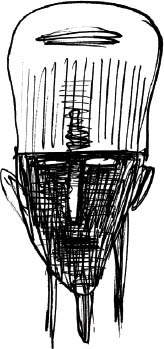
The Pharaoh became, in turn, a victim of his own violence.
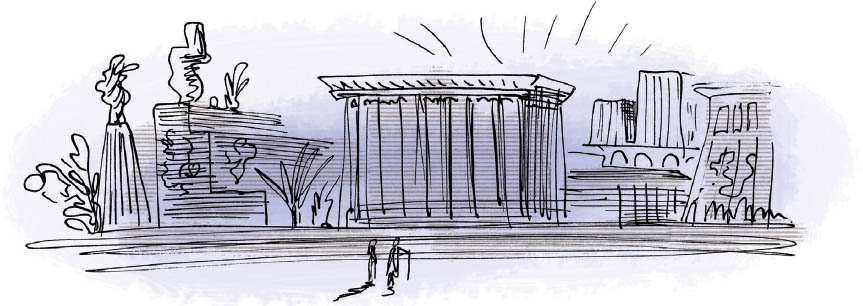
At last, before the great exodus, there came the final blow.
The ultimate disaster that would make the Pharaoh give in.

One night, rampant death beneath the doors of all the houses slid,
killing the firstborn of every family. Rich and poor. Prince and slave. Man and beast.

But the breath of death passed right by the doors of the Hebrews and did not come in.
They had all marked their doors with the blood of a lamb, as God had instructed them.

The lamb and the bread that they ate in haste, before it could rise, as they hurried to leave
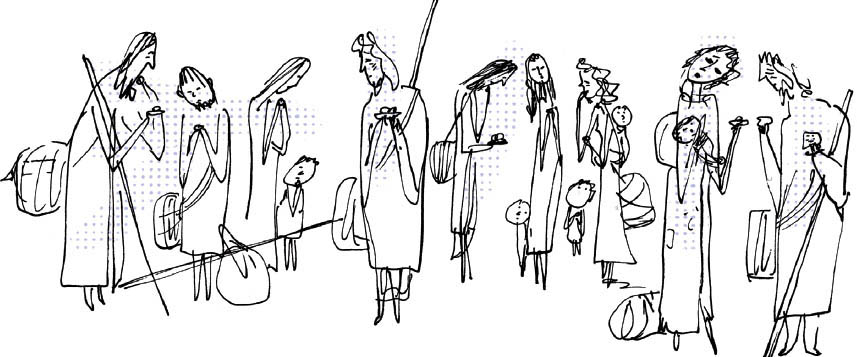
As night fell and their great exodus began.
It was Passover. The great departure. Freedom—and a leap into the unknown.

God said to each one: And this day shall be unto you for a memorial. Remember it.
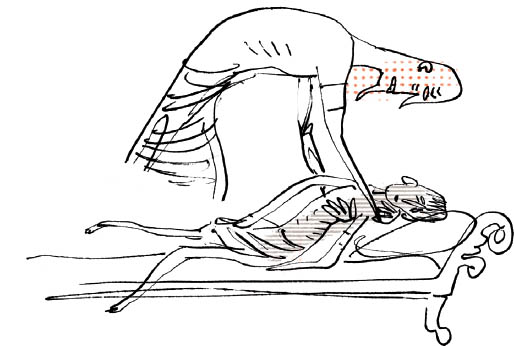
The Pharaoh woke up in the middle of the night. His firstborn son was dead.

All Egypt was a single cry of grief. Not a house, not a palace, without a dead child.
The Pharaoh’s heart was in shreds. He freed all the slaves. And let Moses and his people go.

During the day, they were led through the desert by a pillar of cloud.

At night, by a pillar of fire.
The Hebrews brought with them everything precious.
And Moses carried the bones of Joseph.

They didn’t follow their usual route
But walked into the unknown. Straight toward the sea.
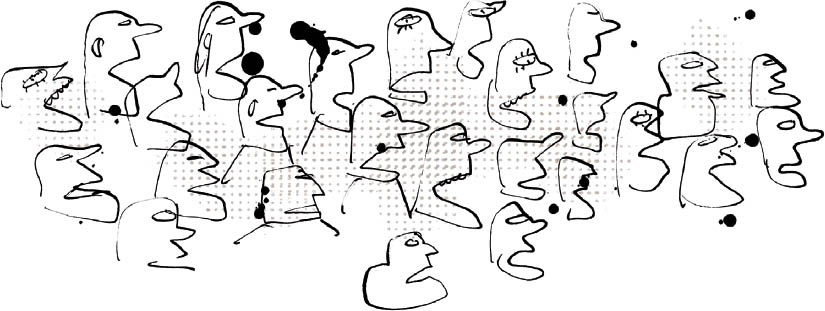
The people grew frightened and cried: Better a slave in Egypt than dead in the desert!
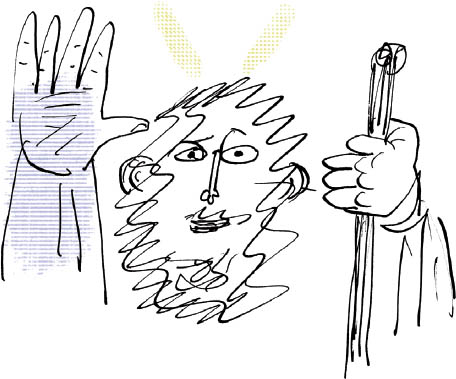
Fear not, said Moses, God is with us.
There before the great sea, the night brightened. Moses raised his staff.
And the sea parted, just as God had parted the waters from the land at the beginning of the world. The liberated people walked away between the two walls of water.
Mad with grief and vengeance, the Pharaoh sent his armies after the fleeing people.
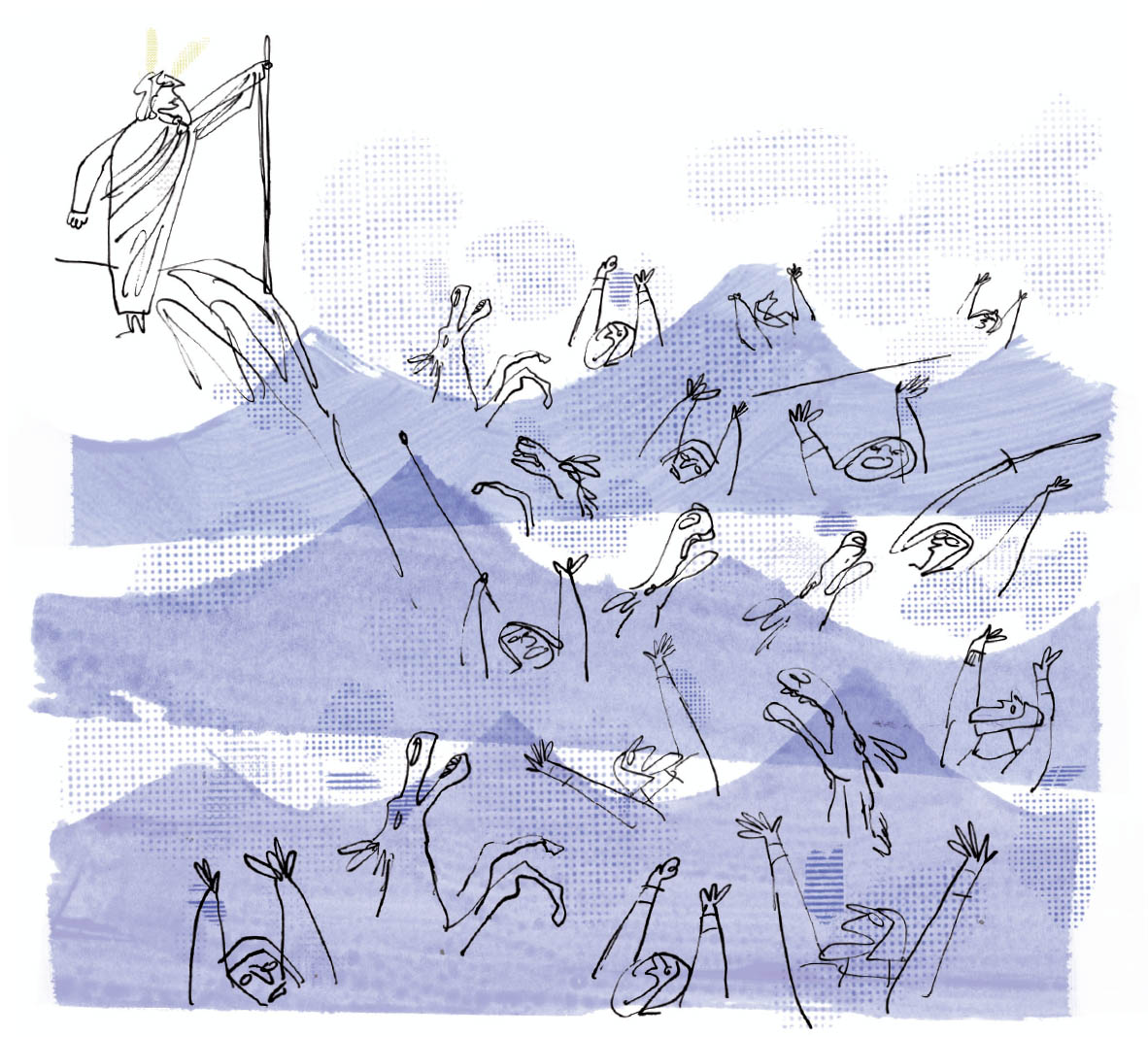
But the walls closed in on them. Horses and riders, engulfed in the waters.
Free at last, the Hebrews turned back to see the Egyptian dead scattered all over the far bank.
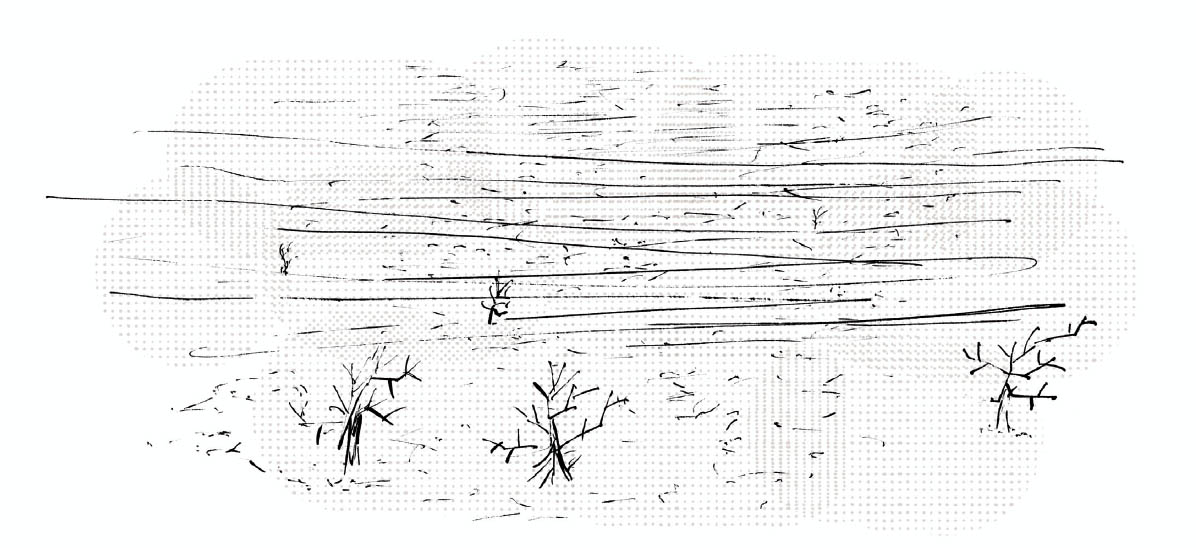
And in front of them, the desert.
And through it, the path to freedom, and to responsibility.